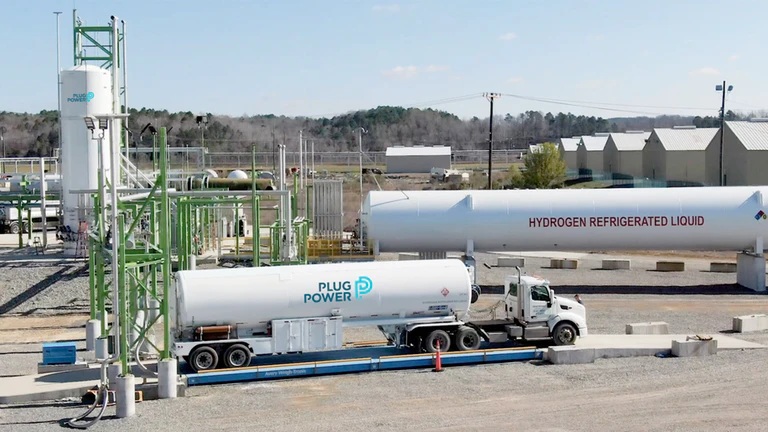“Whether it’s energy density or refueling times, hydrogen fuel cells are a better option than battery electric vehicles for high utilization assets like delivery trucks,” said Plug Power VP Brent Koski.
There is no denying the move towards alternative fuel solutions is gaining momentum with hydrogen and battery electric each surfacing as leaders depending on the use cases. For high utilization assets in particular, hydrogen is a winner, according to Brent Koski, vice president of hydrogen energy at Plug Power. “Whether it’s energy density or refueling times, hydrogen fuel cells are a better option than battery electric vehicles for high utilization assets like delivery trucks. For consumer vehicles, which are parked 95% of their lifetime, batteries make more sense,” he says.
And Plug Power is making solid inroads. Specifically, Plug Power and Brookfield Renewable recently announced plans to build a green hydrogen production plant utilizing 100% renewable energy from Brookfield Renewable’s Holtwood hydroelectric facility as part of previously announced partnership. The plant will be located along the Susquehanna River in south-central Pennsylvania.
Green hydrogen from this facility will support decarbonization of the broader transportation and logistics industries in the Northeast and the mid-Atlantic. The plant is expected to be online by late 2022, with construction slated to begin by in the first quarter of 2022. Once operational, the plant is projected to produce approximately 15 metric-tons of 100% emissions-free liquid hydrogen per day. It is also expected to create more than 25 green energy jobs in Pennsylvania.
This is another step in our quest to build the green hydrogen economy in the USA and globally thereafter. The plant represents a significant milestone in Plug Power’s plan to establish the first North American green hydrogen network. As a vertically integrated energy company, infrastructure is a crucial component,” says Koski.
As one of the first industrial-scale green hydrogen facilities in North America, the plant represents a significant milestone in Plug Power’s plan to establish the first North American green hydrogen network and to produce over 500 tons per day of hydrogen by 2025.
In the coming years, the hydrogen economy is expected to grow exponentially, potentially providing up to 24% of energy needs and reaching $10.0 trillion in annual revenues by 2050 as reported by Bloomberg New Energy Finance. Green hydrogen is an essential component of a zero-carbon economy and critical to the decarbonization of transportation and logistics sectors as well as hard-to-abate industrial applications like steelmaking. A McKinsey study estimated that by 2030, the US hydrogen economy could support 700,000 jobs.
Plug Power also recently announced the construction of a green hydrogen production facility and electric substation in the Western New York Science, Technology and Advanced Manufacturing Park, joining the company’s existing plant in Tennessee as the initial links in its North American green hydrogen production network.
Of course, challenges remain as alternative fuel sources enter an established marketplace aligned to efficiently deliver gasoline and diesel. “The key challenges are ones we are currently tackling: the demand for liquid hydrogen and associated infrastructure will go up as fuel cells are integrated into next generation vehicles where the use case makes sense,” he says. “That’s why this announcement is so important—we’re building out our capabilities to produce green hydrogen, and we’re building a green hydrogen network across the U.S. to meet that demand. We’re excited about these challenges, and ready to meet them.”
This article originally appeared on Industry Week.
By Peter Fretty
Source: https://www.fleetowner.com/
CUT COTS OF THE FLEET WITH OUR AUDIT PROGRAM
 The audit is a key tool to know the overall status and provide the analysis, the assessment, the advice, the suggestions and the actions to take in order to cut costs and increase the efficiency and efficacy of the fleet. We propose the following fleet management audit.
The audit is a key tool to know the overall status and provide the analysis, the assessment, the advice, the suggestions and the actions to take in order to cut costs and increase the efficiency and efficacy of the fleet. We propose the following fleet management audit.



